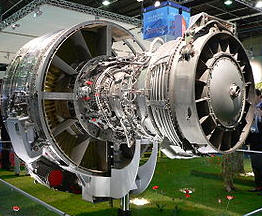|
|||||||||||||||||
|
|
|
|||
|
By Eddy Metcalf |
||||
 |
December 20, 2010 - Lufthansa Airlines has announced the
selection of the CFM International CFM56-5B to power 21
Airbus A320 and two Airbus A321 aircraft in a firm
engine order valued at approximately $300 million
The CFM56-5B is the engine, producing 22,000 - 33,000
pounds thrust is the engine of choice for the A320
family, having been selected to power nearly 60 percent
of the A318/A319/A320/A321 aircraft ordered.
One of the primary factors behind the CFM56-5B's broad-based market acceptance has been its simple, rugged architecture, which gives it the highest reliability, durability and repairability in its class. More than 4,000 CFM56-5B engines have been delivered and this fleet has accumulated more than 50 million flight hours. |
|||
|
The
aircraft will be operated by Lufthansa Airlines and Swiss
International and are scheduled for delivery from 2013 through
late 2014. The airplane order was previously announced in
September 2010.
Lufthansa
and Swiss, which are both part of the Lufthansa Aviation Group,
currently operate a fleet of 98 CFM-powered Airbus
A319/A320/A321 and 41 long-range, four-engine A340-300 aircraft.
In addition, Lufthansa operates 63 CFM56-powered Boeing 737
Classics thus totalling some 486 CFM engines in their
operational fleets. Including the other Group members
Germanwings, British Midland and Austrian, the number of CFM56
engines operated in the Group totals more than 650
Since it's
foundation, Lufthansa has been a driving force behind commercial
aviation. In recent years, the airline has been one of the
industry's strongest proponents of "green" technology that
reduces the impact of aviation on the environment, particularly
noise and emissions. The CFM56-5B Tech Insertion engines powering this fleet provide the right technology base to help Lufthansa achieve these goals. CFM incorporated improvements to the high-pressure compressor, the combustor, and the high- and low-pressure turbines to provide operators with up to a 1 percent improvement in specific fuel consumption. |
||||

